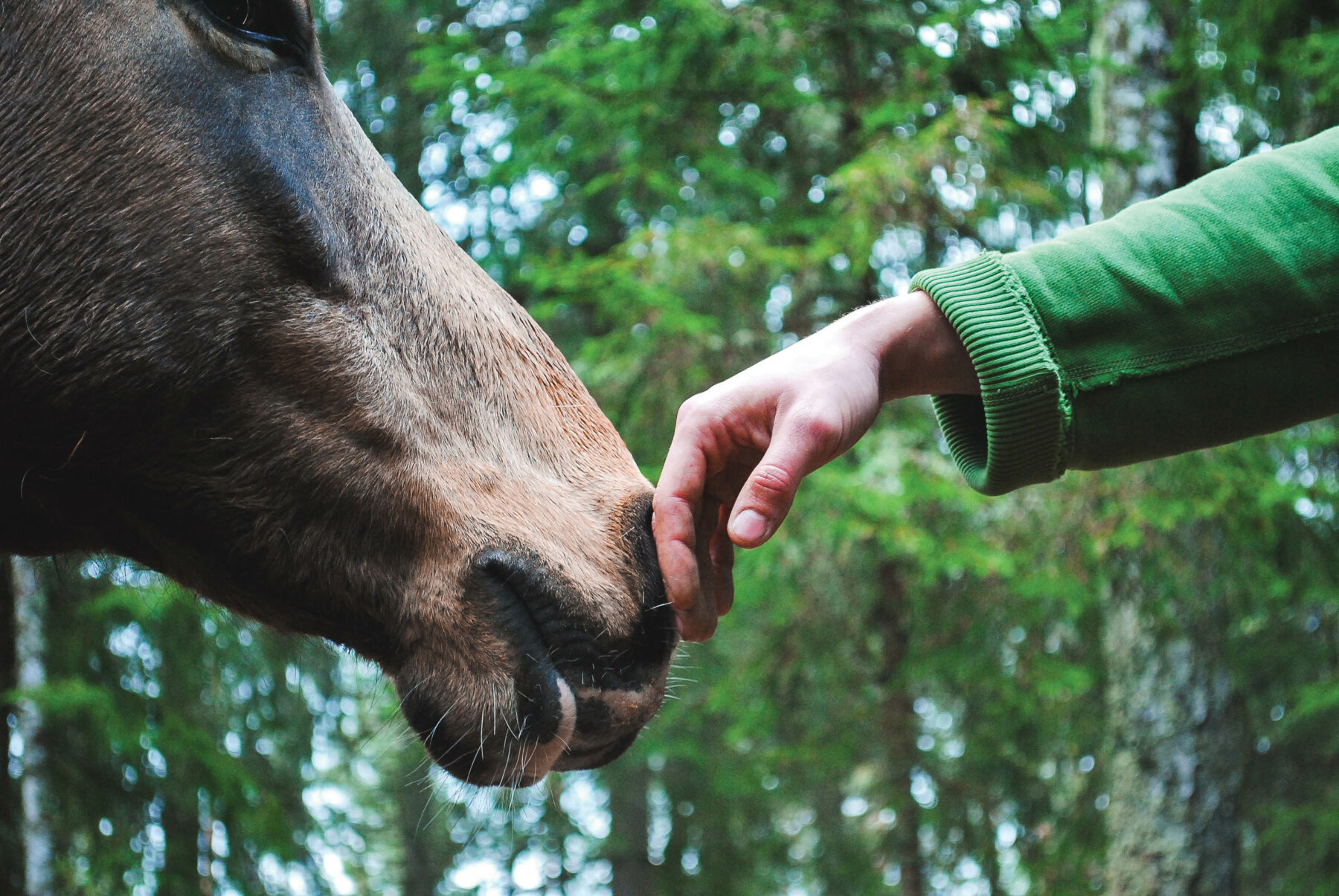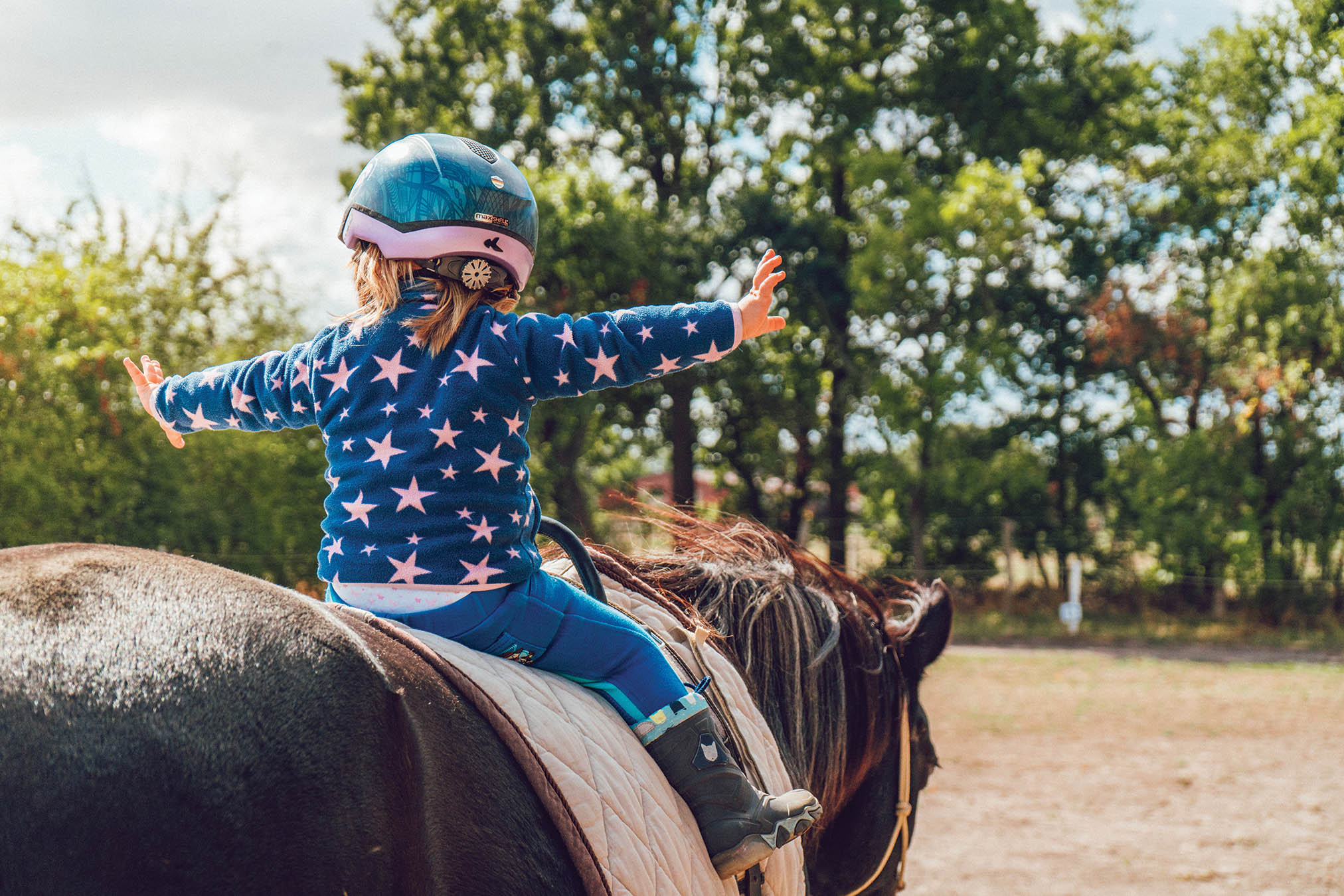The Benefits of Equine-Assisted Therapy

The healing power of animals is evident to anyone who has snuggled up with their pup after a breakup or cuddled their kitty when they were feeling lonely. Research has proven that the unconditional love of animals is stress-reducing and has positive well-being effects. In addition to the conventional dog or cat, horses have also been found to be incredible healers, and not just for people’s emotional well-being. Horses are used in many forms of therapy — physical, occupational, social-emotional and even recovery from post-traumatic stress disorder (PTSD).
Research into equine-assisted therapy dates back to the late 1800s when Florence Nightingale reported using companion animals as a form of therapy to boost the emotional well-being of a confined person. Even before Nightingale’s documentation, there are accounts of horses providing physical and emotional benefits as far back as 5 B.C., according to The Canadian Veterinary Journal. The use of animal-assisted therapy after the wars of the 20th century has proved beneficial for PTSD, anxiety, limb loss and addiction recovery.
It’s common knowledge that mental health has become an important topic over the last few years, especially as the impact of the COVID-19 pandemic and the residual trauma from quarantine has brought to light the need for more options for different forms of therapy. With the increase in mental health issues after the pandemic, new options for social-emotional therapy are expanding. According to a blog post from Equine Facility Design, there has been an increase in demand for equine-assisted therapy in the last two years to help with COVID fatigue, loss, grief, isolation and COVID anxiety.
Luckily, equine therapy for mental health is effective for many difficulties people face. Because it takes a team effort to care for horses, patients will learn how to care for the animal as well as ride it, which helps with concentration, self-confidence, empathy and selflessness.

According to a medically reviewed article, caring for horses can help treat behavioral problems, relationship issues, grief, anxiety, depression, attention-deficit/hyperactivity disorder, addiction and eating disorders. Therapeutic riding programs can help treat physical and occupational issues like amputation, autism, cerebral palsy, down syndrome and emotional/behavioral difficulties.
So what happens during an equine therapy session? Well, the experience is different for everyone, but there are some consistencies that make this unique form of therapy so successful. First, patients are brought in to work with specially trained horses. Patients learn to care for the horse and earn the horse’s trust while also learning to trust the horse themselves. Additionally, in a team environment, there is an opportunity to socialize. Being able to follow directions and be coachable as well as growing conviction in sharing ideas promotes self-confidence.
When appropriate, a patient may learn to lead or ride a horse. If the patient cannot physically straddle the horse, a horse and buggy option may be provided. Learning balance leads to improved spatial awareness. This helps with improving physical endurance, strength and ultimately confidence.
Overall, caring for animals has proven to reduce stress and be mood-boosting. People with pets have healthier cholesterol levels, lower blood pressure and lower triglycerides. When you own or visit horses, more time is spent outside providing you with fresh air and vitamin D. When you add in the riding aspect along with the care of the horses, you can participate in a great form of exercise. Riding, grooming, cleaning stalls and feeding horses also enhances physical endurance.
Austin and its surrounding areas have facilities offering equine-assisted therapy, including places like The Wild Hope Equine Center for Healing, Cadence Therapy, PLLC and Healing with Horses Ranch. Working with doctors and therapists to find the right treatment, these facilities are giving their patients an incredible opportunity.
If you think equine-assisted therapy is something that would be beneficial to you or someone you know, reach out to your caregiver and see how you can incorporate equine therapy! Then, feel the benefits of getting to know and care for your new horse friend!
About the Author

Coach Kati Epps is the founder of MyBody GX with a background in chemistry from Colorado State University, an ACE-certified personal trainer, health coach and nutrition specialist.






